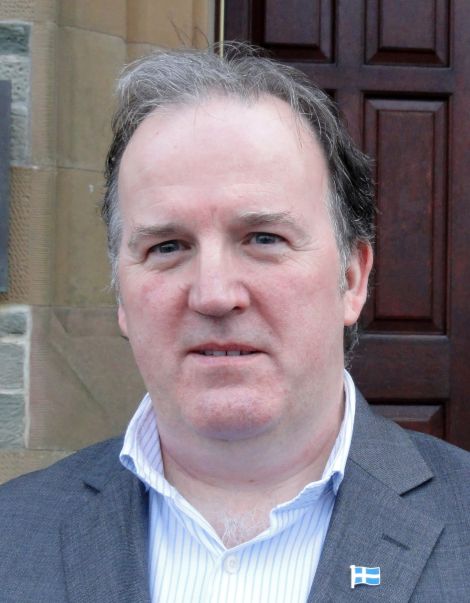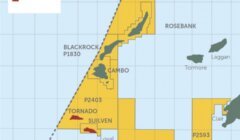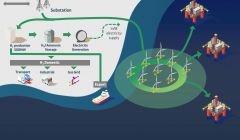Climate / Councillors voice concern that Shetland’s interest might not be heard in the race for large green energy projects
Shetland carbon footprint calculated at 650,000 tonnes
A SHETLAND councillor has warned of growing negativity towards the ambitious ORION clean energy project if “we don’t get the communication right”.
Shetland Central member Davie Sandison was highlighting the competing industry interests in the waters around the isles and warned that previous experience had shown him that governments in London and Edinburgh might not necessarily listen to Shetland’s interests when granting licences for offshore developments.
He was speaking during a meeting of the council’s transport and environment committee in a debate on Shetland’s response to the climate crisis.
Following an update on the ORION project, which aims to assist the oil and gas industry’s transition to net zero and reduce the isles’ dependency on fossil fuels, councillors also heard of the local authority’s own progress in reducing its carbon footprint.
Debating the ORION project councillors voiced some concern that those in power might not appreciate the significance of what the project proposes to achieve.
With Shetland having no jurisdiction in licensing offshore renewable developments it was all the more important for fishing and navigational interests to be fully understood by decision makers.
Councillor George Smith said it was high time to move on from simply presenting Shetland’s ideas to fully engaging in meaningful discussions with government.
Sandison added: “There is a danger with this project that we might find the level of negativity towards it growing if we don’t get that communication right.
“And that’s disappointing because this is such an important and ambitious and wide-ranging set of different activities that the last thing we need is find that opposition has built unnecessarily at this crucial stage.
“Despite the fact that we don’t have consenting authority (…), we need to make sure that our strategy is absolutely pinpointed at the engagement level we need with the relevant national authorities.”
Become a member of Shetland News
Meanwhile, locally, a number of different climate change projects have been initiated across the council to drive down its carbon dioxide emissions and replace fossil fuels with green energy.
The next step is to develop net-zero route maps for the council as well as for the whole of Shetland.
Head of the council’s new climate change team Claire Ferguson said she was hugely encouraged by the response received to a recent climate change survey.
Almost 850 people responded to the online survey indicating a high awareness of the issues at stake in the islands, she said.
Director of infrastructure John Smith said that although the islands were due to become net-zero in term of electricity use once the Viking wind farm starts producing power in 2024, there were plenty of challenges ahead in terms of converting ferries and the fishing fleets with green energy sources.
Executive manager for future energy Douglas Irvine added that a marine group to look at finding solutions in terms of marine fuels has already been set up.
“And that involves the fishing sector, aquaculture, the council’s ferry fleet and the marine engineering sector in Shetland,” he said.
Meanwhile, the size of the challenge of turning the isles into a net-zero community by 2045 has been illustrated in a number of slides provided with the council reports.
It has been known for a long time that at 235,900 tonnes of carbon dioxide emissions or 10.2 tonnes per person (2017 UK Government figures) Shetland has among the highest annual carbon emissions anywhere in the UK.
However, when adding industry, aviation and marine transport Shetland’s actual carbon footprint is around 650,000 tonnes, almost three times higher. That equates to annual ‘onshore’ Shetland CO2 emissions of 28 tonnes per person.
The figures of Shetland’s carbon footprint audit can be broken down as follows:
Another piece in the jigsaw is fuel poverty, which relates to level of money households pay on heating their homes compared to their income.
At a meeting of the council’s policy and resources committee on Tuesday afternoon environment and estate operations manager Carl Symons said there was a hope in the future to develop a “one stop shop” for people needing help with fuel poverty.
Infrastructure director Smith reiterated that the council will continue to press for a “Shetland tariff” which could in theory provide lower prices for islanders once Shetland becomes a net exporter of energy in 2024.
SNP councillor Robbie McGregor encouraged the council to continue to speak up on the issue with the Scottish Government in a “reasoned” manner – but fellow Shetland South member Allison Duncan said he was sceptical of ministers stumping up funding.
Become a member of Shetland News
Shetland News is asking its many readers to consider paying for membership to get additional features and services: -
- Remove non-local ads;
- Bookmark posts to read later;
- Exclusive curated weekly newsletter;
- Hide membership messages;
- Comments open for discussion.
If you appreciate what we do and feel strongly about impartial local journalism, then please become a member of Shetland News by either making a single payment, or setting up a monthly, quarterly or yearly subscription.












































































